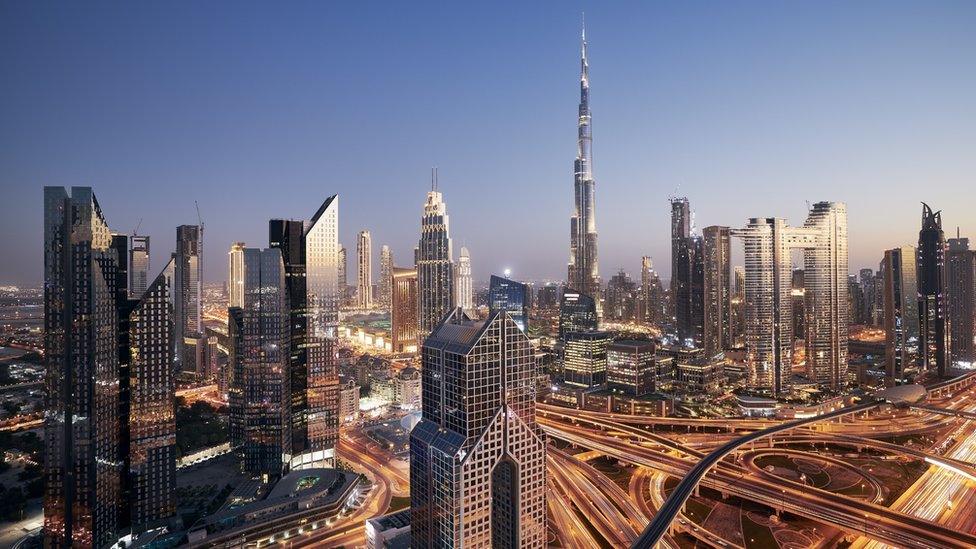Overview of the UAE-Italy Investment Deal
The United Arab Emirates (UAE) has announced plans to invest a staggering $40 billion in Italy, a move that could reshape the economic landscape of both nations. Italian Prime Minister Giorgia Meloni has confirmed the deal, emphasizing its potential to strengthen economic ties, create jobs, and boost innovation. This investment comes at a critical time for Italy’s economy and is expected to have a far-reaching impact across multiple sectors.
Key Highlights of the UAE Investment
- Investment Amount: $40 billion
- Primary Sectors Targeted: Energy, Infrastructure, Technology, and Defense
- Long-Term Economic Impact: Strengthening bilateral relations and boosting economic growth
- Italian Government’s Stance: Welcoming the investment as a major boost to their economy
- UAE’s Strategic Goals: Expanding its global influence and economic partnerships
Why Is the UAE Investing in Italy?
The UAE’s decision to invest heavily in Italy is not random—it aligns with strategic economic and political goals. Here’s why this investment is crucial:
1. Strengthening Economic Partnerships
- Italy and the UAE have enjoyed strong diplomatic and trade relations for years.
- The deal solidifies Italy as a key European partner for the UAE.
- Enhanced trade agreements and business collaborations are expected to follow.
2. Diversification of UAE’s Economy
- The UAE is working on reducing its dependence on oil and gas.
- Investing in Italy’s infrastructure and technology sectors provides new economic avenues.
- Italy’s automobile, aerospace, and renewable energy sectors are lucrative opportunities.
3. Italy’s Economic Potential
- Italy is the third-largest economy in the Eurozone and a hub for luxury goods, fashion, and technology.
- Despite recent economic challenges, Italy remains a prime investment destination.
- The Italian government is actively seeking foreign investments to revive growth.

Which Sectors Will Benefit from the Investment?
The UAE’s $40 billion investment is expected to be distributed across key sectors to maximize economic benefits.

1. Energy Sector
- Focus on Renewable Energy: The UAE aims to invest heavily in solar and wind energy projects in Italy.
- Oil & Gas Partnerships: Strengthening Italy’s role as a European energy hub.
- Sustainability Efforts: Collaboration on green hydrogen and carbon reduction initiatives.
2. Infrastructure Development
- Major upgrades in Italy’s transportation, ports, and logistics sectors.
- UAE companies might take part in high-speed rail projects and smart city initiatives.
- Improved connectivity between Italy and the Middle East.
3. Technology & Innovation
- Investments in Artificial Intelligence (AI), cybersecurity, and digital transformation.
- UAE tech firms could collaborate with Italian startups and research institutions.
- Strengthening Italy’s role in the European technology ecosystem.
4. Defense and Aerospace
- Italy is home to some of Europe’s top defense contractors.
- Joint ventures in aerospace manufacturing, drones, and defense technologies.
- Enhanced security cooperation between the two nations.

Impact on Italy’s Economy
This $40 billion investment is expected to significantly boost Italy’s economy, bringing positive changes in multiple areas.
1. Job Creation & Employment Growth
- Thousands of new jobs are expected across various sectors.
- Italian companies will receive fresh capital, leading to business expansion.
- Skilled labor demand in technology and energy sectors will rise.
2. Strengthening Italy’s Global Position
- Italy could become a major gateway for Middle Eastern investments in Europe.
- Strengthened economic ties with the UAE can attract additional investors.
- Enhanced trade relations with Gulf nations.
3. Boosting Economic Stability
- Increased foreign direct investment (FDI) will stabilize Italy’s economy.
- The move supports Italy’s post-pandemic recovery efforts.
- Greater financial resources for public projects and innovation.

Challenges and Concerns
While the investment deal brings optimism, it also raises several concerns and challenges.

1. Political and Regulatory Hurdles
- Italy’s government must ensure transparency in investment policies.
- Potential bureaucratic delays could slow down implementation.
- EU regulations may impact the speed of project approvals.
2. Economic Risks
- Global market fluctuations could affect investment returns.
- If projects are not managed well, the expected economic boost may not materialize.
- Risk of over-reliance on foreign capital.
3. Public Reaction and National Interests
- Some Italian politicians and citizens might oppose large foreign investments.
- Concerns over control of key industries by foreign entities.
- Need for balanced agreements that benefit both nations.
Conclusion: A Win-Win Deal for Italy and the UAE?
The $40 billion UAE investment in Italy represents a historic economic partnership with enormous potential. While challenges exist, the benefits—ranging from job creation and economic stability to technological advancements and energy sustainability—make this a promising development. As both countries move forward, the world will be watching how this partnership shapes the future of Europe’s economy and strengthens global trade relations.
Do Follow UAE Stories For More Updates.














